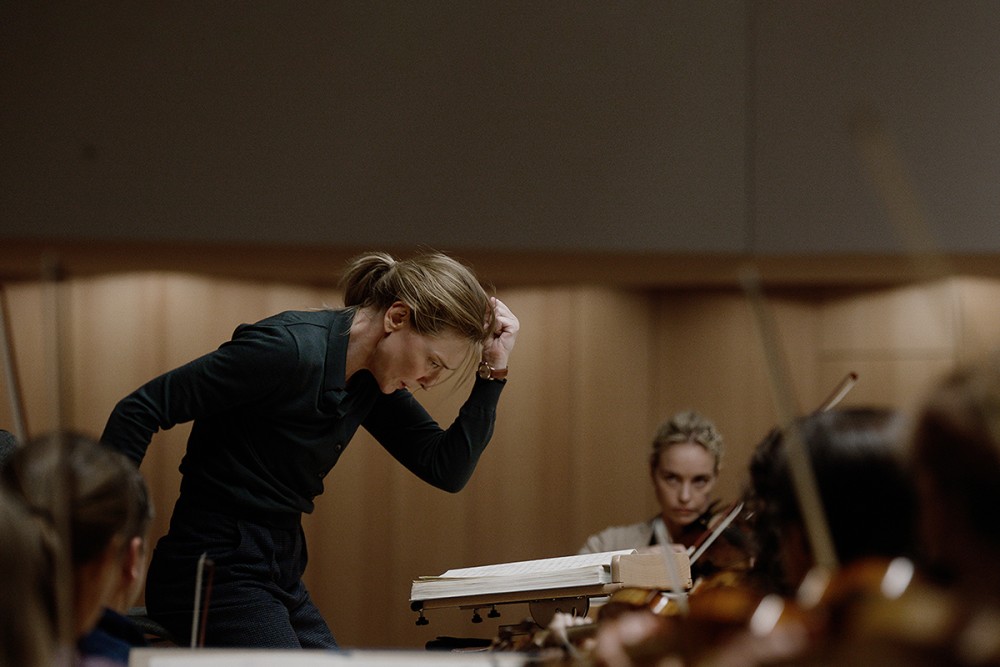Judging Lydia Tár
Todd Field’s movie about a megalomaniacal musician is, like his earlier films, interested in moral ambiguity.

Early in the movie Tár (directed by Todd Field), Lydia Tár (Cate Blanchett) is holding forth about her art and life to a packed crowd at a New Yorker public talk. Lydia is a world-famous conductor and composer who has won all the awards (literally) and broken all the glass ceilings, and now thousands of people will pay to hear her talk about anything she wants. Answering a question about what, exactly, a conductor does, beyond just starting and stopping the music, she laughs and then pauses. Starting the music, she says, is itself far more than it seems. It is about controlling time—beginning the time of the music, but also slowing it down or rushing it along. Music is time, she says, and the conductor is the master of both.
It becomes clear that Lydia thinks of herself as a master off stage as well as on, and the rest of the movie is an intimate portrait of the way she wields power—ruthlessly, meticulously, self-servingly—and the way it undoes her. The portrait is of a person who has willed herself into mastery through natural genius, unrelenting work, and manipulation of everyone around her for personal ends. As her wife says bitterly, all her relationships are transactional, valued only for what they will contribute to her success and self-importance. Like many powerful men before her, Lydia made some of these transactions with young women she seduced with the promise of professional success or the allure of proximity to greatness.
Field has only directed three films—In the Bedroom (2001) and Little Children (2006) before Tár—and each explores the subject of moral ambiguity. Each withholds a final judgment on its characters, while also asking viewers to think seriously about what it means to not know for sure how to judge something. Each interrogates how to make judgments or take action on the basis of imperfect knowledge and unsure wisdom.




